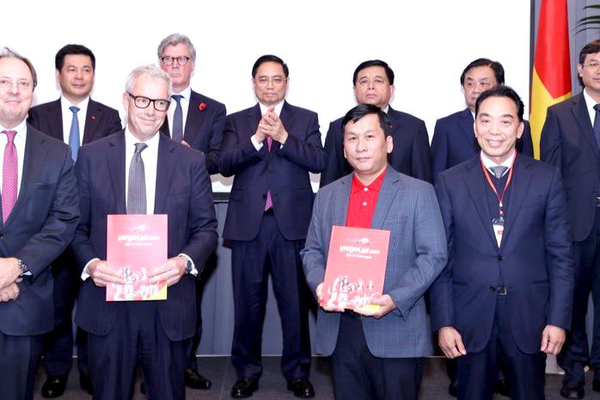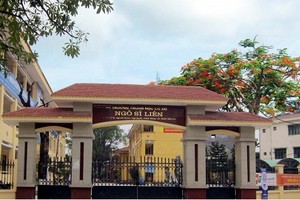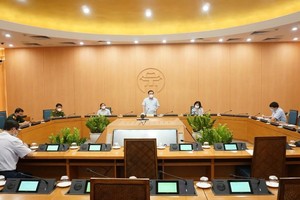The Ministry of Finance (MOF) is planning to sharply cut the import tariffs on trucks to be imported under the mode of complete built units (CBU) as of January 1, 2011. If the plan becomes true, this will stifle the domestic automobile industry.
Taxes will be cut
 |
MOF has consulted the relevant agencies and the Vietnam Automobile Manufacturers’ Association (VAMA) on the plan to cut the import tariffs on trucks. The new tax rates are all lower than the currently applied levels and lower than the levels committed to by Vietnam when joining the World Trade Organisation (WTO).
The tentative tariff on the trucks with the tonnage of less than five tons is 30 percent, 50 percent lower than the currently applied rate and 40 percent lower than the level committed to within the WTO.
As for 5-10 ton trucks, the new tax rate is 25 percent, while the current rates are 54-55 percent, and the WTO stipulated level is 50 percent.
As for the trucks over 10 tons-20 tons, the new tax rate is 25 percent, while the current rate is 30 percent, and the WTO level is 50 percent.
The tax rates are 15 percent, 8 percent and 25 percent, respectively, for 20-45 ton trucks.
Only the trucks with the tonnage of over 45 tons and specialized vehicles will see the tax rates unchanged.
According to MOF, trucks are the production tool of enterprises which use trucks to carry cargo. Therefore, the ministry believes that the currently applied tariffs on the trucks with the tonnage of less than 10 tons are relatively high. Meanwhile, the local production still cannot meet the demand. Domestic manufacturers can only make simple parts of trucks, while the main parts of vehicles such as engine or chassis still must be imported.
If the tariffs on trucks are lowered as planned by MOF, the new tax rates on import CBU trucks will only be higher by 10-15 percent than the tax rates on vehicle parts. MOF believes that the gap of 10-15 percent is reasonable, meaning it is high enough to protect local production and while not affecting the production costs of enterprises.
Besides, MOF said the value of imported trucks is not big, therefore, the changes in the import tariff will not have considerable impacts on the budget.
Inconsistent policies?
Domestic manufacturers expressed their discontent right after MOF revealed the plan to lower the tariff.
Tran Ba Duong, General Director of Thaco Group, said the sudden sharp cut of the tariffs will push domestic automobile manufacturers to the wall.
“We thoroughly analysedGovernment’s policies and Vietnam’s WTO commitments before we decided to make investment. Our business plan has been drawn up based on the automobile development strategy set up by the Government. We have injected trillions of dong in our factory. And MOF unexpectedly decides to encourage CBU imports by lowering import tariffs. This is like MOF’s forcing domestic manufacturers into bankruptcy,” Duong said.
Bui Ngoc Huyen, General Director of Vinaxuki, also said that Vinaxuki has spent a lot of money on increasing the ratio of locally made products/parts. To date, it has reached 50 percent.
“If the MOF’s plan is implemented, we will have to shut down the factory and give up the hope of making Vietnamese vehicles,” Duong said.
Director of the Heavy Industry Department under the Ministry of Industry and Trade (MOIT) Nguyen Manh Quan also said that the sharp tariff cut seems unreasonable, especially when some domestic manufacturers have made heavy investment to increase the localization ratio of the products.
According to MOIT, in the first nine months of the year, Vietnam produced 77,400 vehicles, including 29,900 trucks.




















